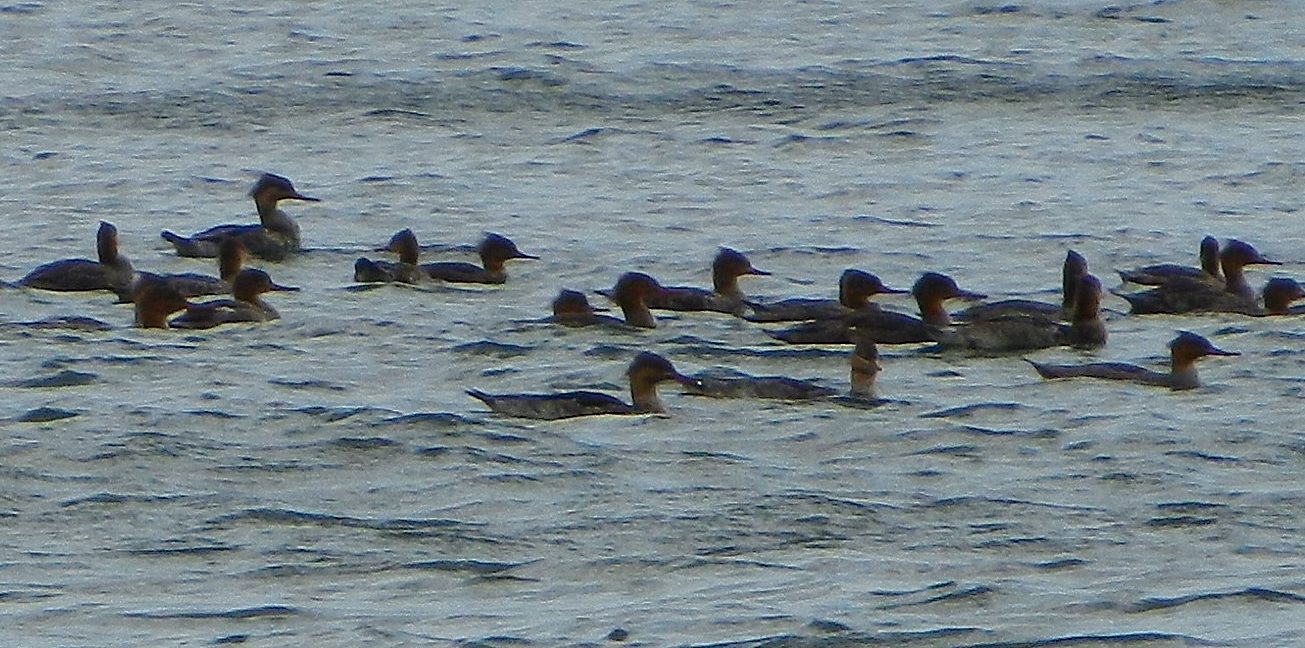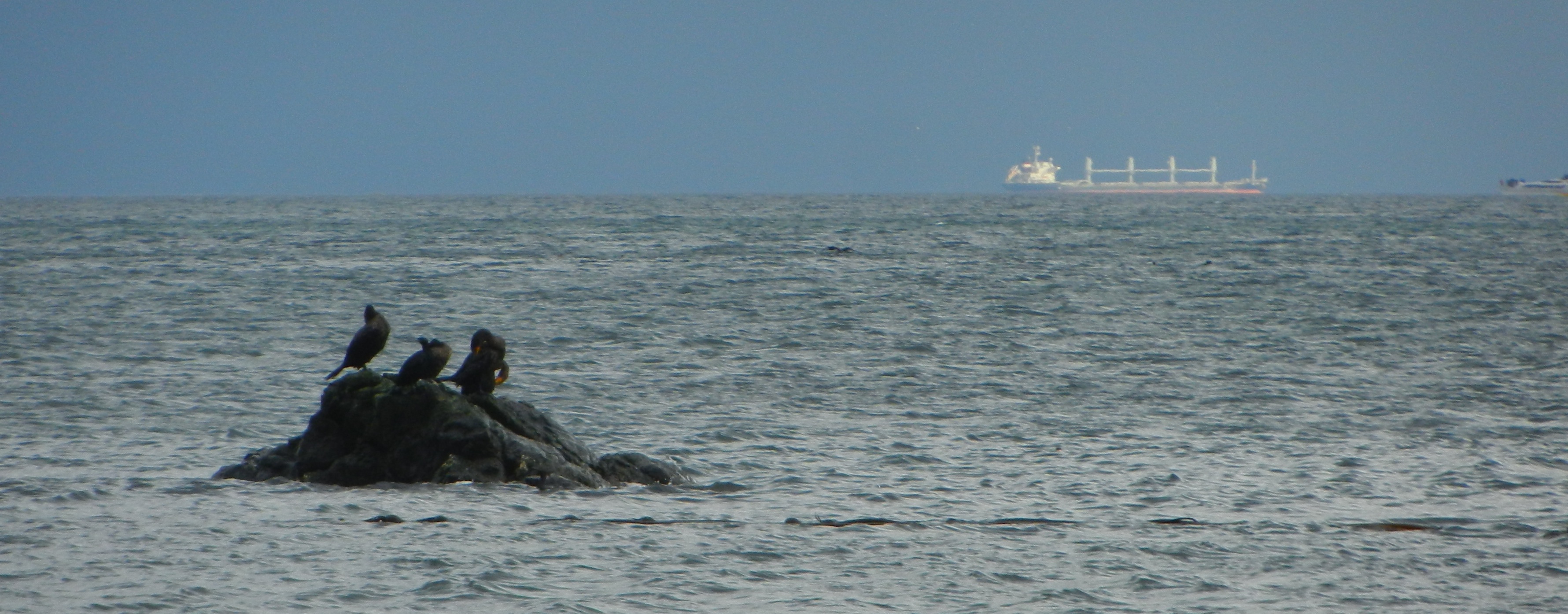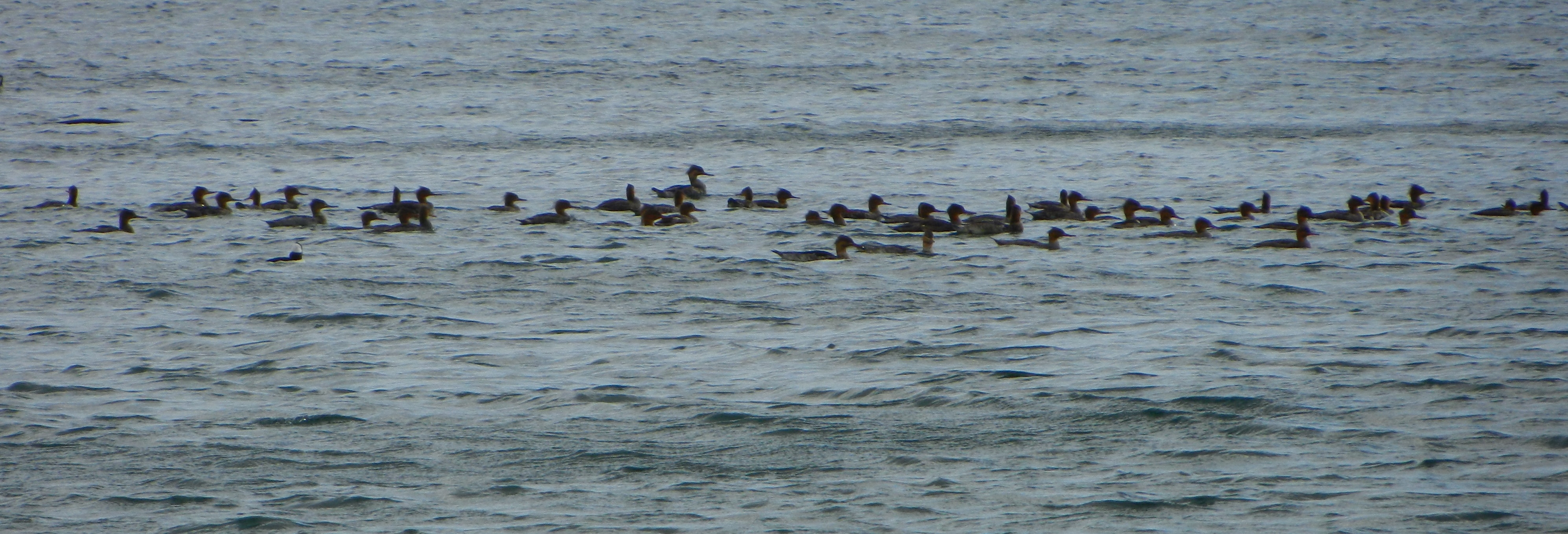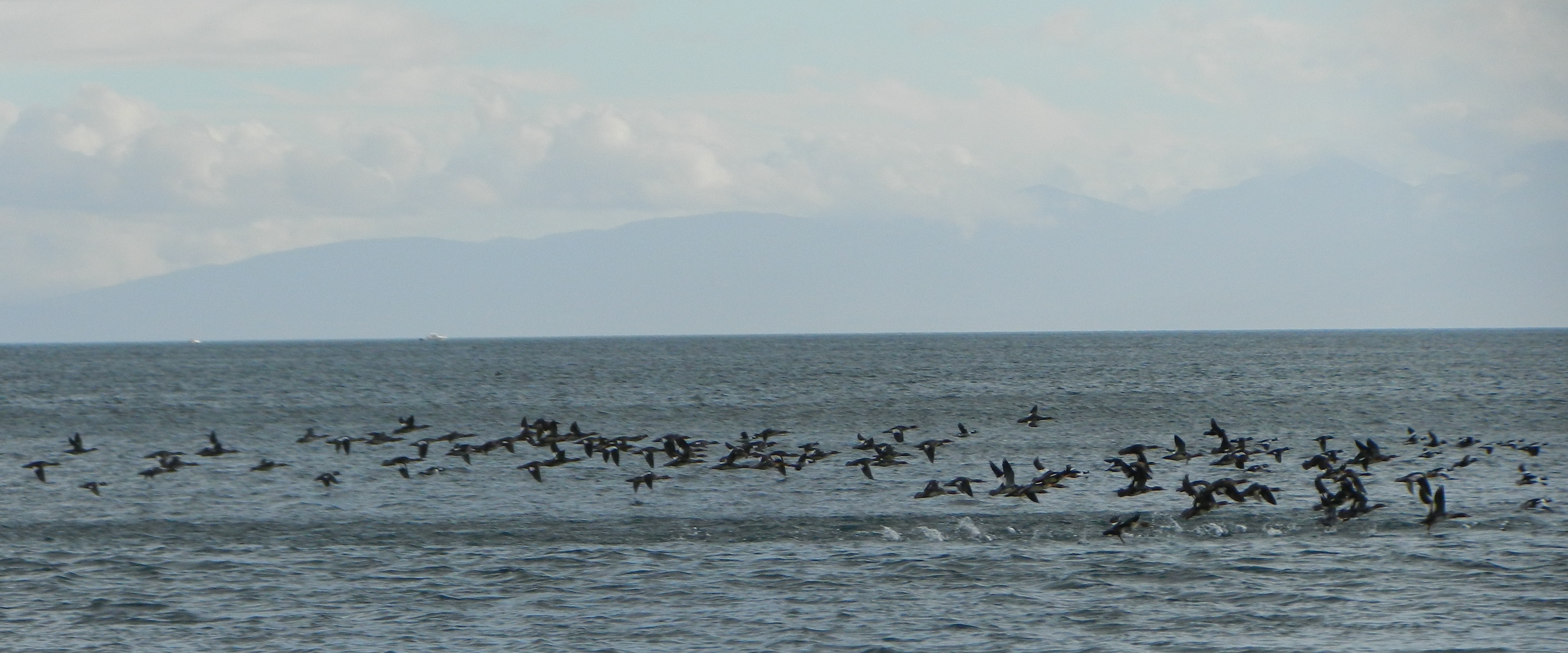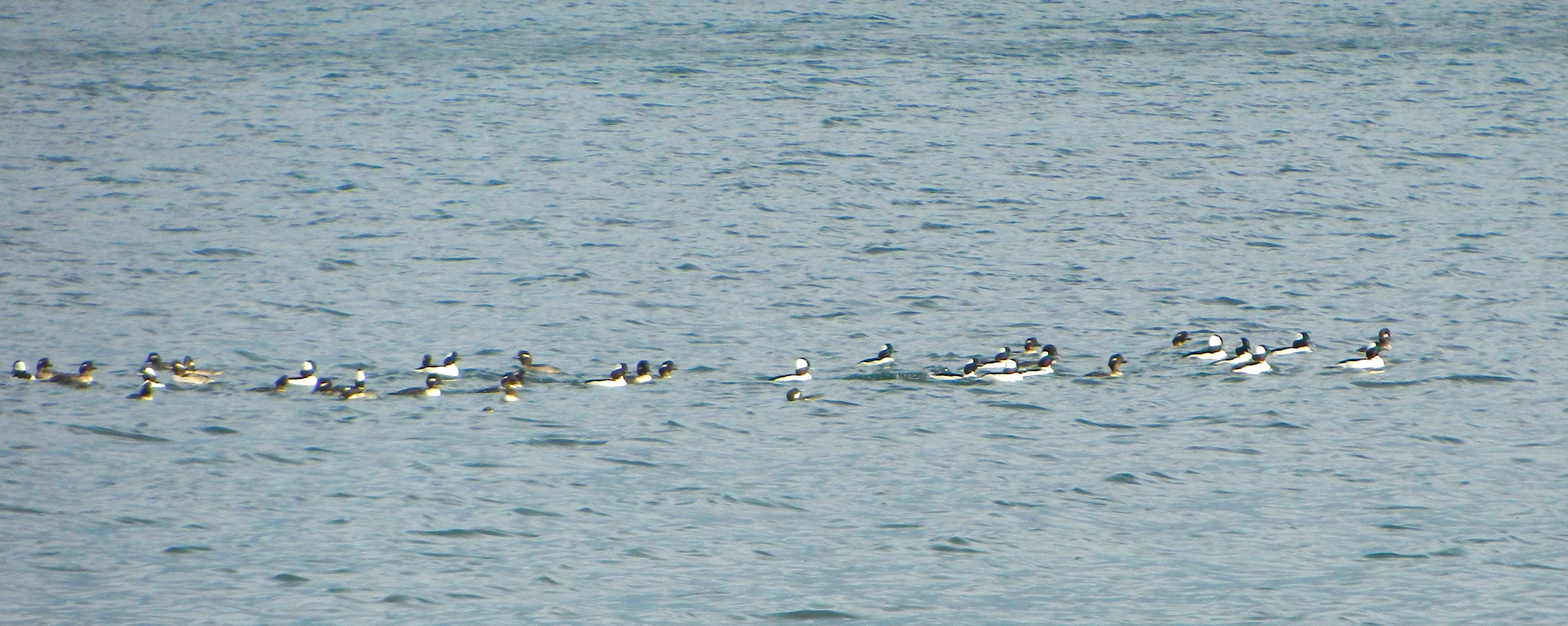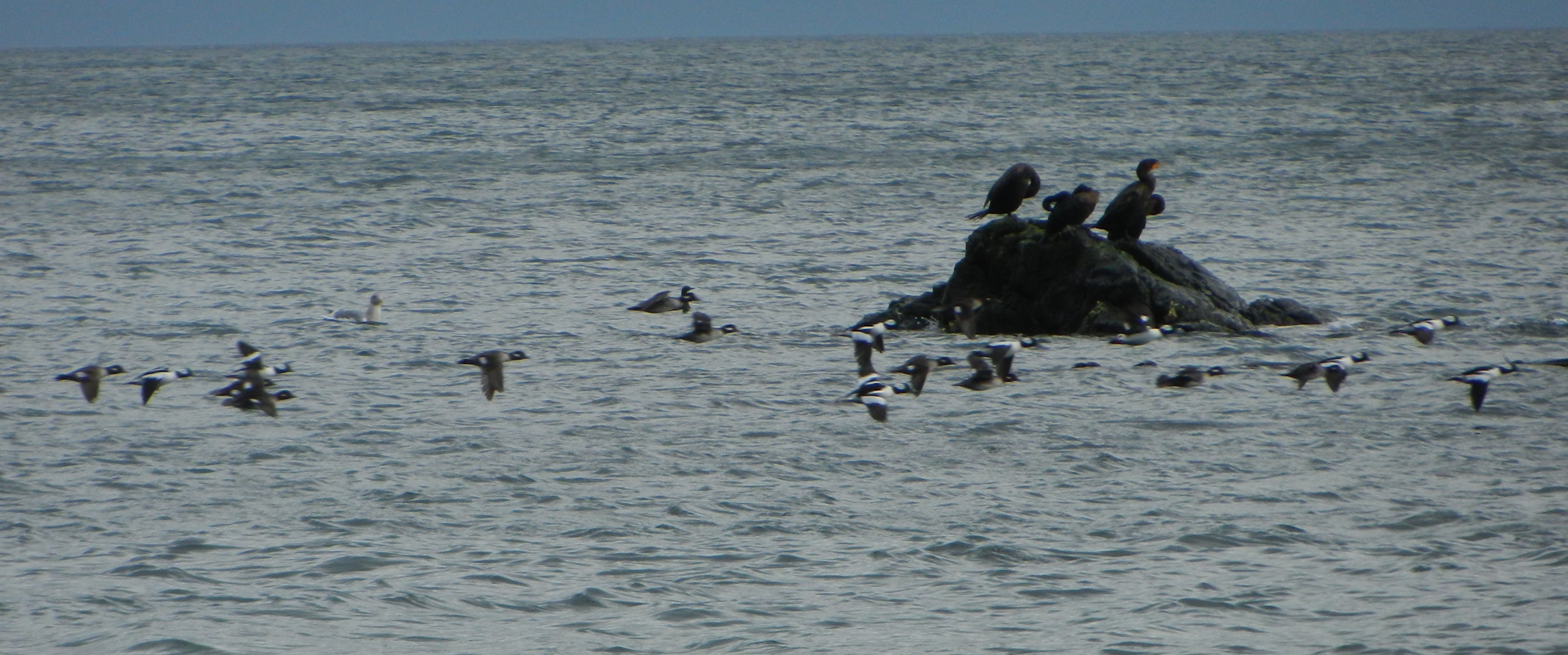A search of oil spill risk and response shows some very useful references from the State of Washington. The PUGET SOUND PARTNERSHIP has produced an excellent study
http://www.psp.wa.gov/ FINAL REPORT: VTRA 2010
EXECUTIVE SUMMARY
Vessels transiting the Salish Sea traverse waters bordering numerous communities en route to ports in both the US and Canada. The Salish Sea is a large (over 1000 square miles) and diverse water body physically characterized by passages that are broad and deep, as well as narrow ones that are navigationally challenging with swift currents. In addition, it is a biologically rich ecosystem with significant natural resources these communities depend upon.
The Strait of Juan de Fuca serves as the entrance to these U.S. and Canadian ports and facilities and is transited by approximately 10,000 deep draft vessels annually including arrivals and departures. Additional transits occur internally as vessels shift locations. There are also tug and barge movements, ferry operations, fishing and recreational vessels throughout. For example, the U.S. Coast Guard Vessel Traffic Service (VTS) alone handles approximately 230,000 transits annually with about 170,000 of those being Washington State Ferries meaning there are more than 50,000 transits other than ferries. The Puget Sound Pilots report nearly 8,000 assignments annually which provide a good metric for how many deep draft vessel movements there are on the U.S. Side. ———–
While a previous GW/VCU analysis [2] of this area demonstrated significant risk reduction of oil transportation risk due to existing risk mitigation measures, the potential for large oil spills continues to be a prominent public concern heightened by proposed maritime terminal developments. In this study we focus on the following three (although other ones are under consideration) since these three are in advanced stages of a permitting process:
(1)The proposed Gateway bulk carrier terminal at Cherry Point, Washington.
(2)The Trans-Mountain/Kinder Morgan pipeline expansion in Vancouver, BC.
(3)The coal, grain and container terminal expansions at Delta Port, BC.
The purpose of this vessel traffic risk assessment (VTRA) is to evaluate potential changes in risk in light of above three maritime terminal developments and to inform the State of Washington, the United States Coast Guard and the Puget Sound Harbor Safety Committee on what actions could be taken to mitigate potential increases in oil spill risk from large commercial vessel in the VTRA study area. This study was not designed to measure the effectiveness of risk mitigation measures already in place. This study is also intended to inform tribes,local governments, industry and non-profit groups in Washington State and British Columbia on potential risk management options.
Summarizing, this study was conducted because study sponsors and involved stakeholders want to ensure potential risks of maritime development projects above are better understood so informed decisions could be made about additional risk mitigation measures that would add to the continuous improvement efforts of the past.
See the comlete pdf:http://www.psp.wa.gov/ FINAL REPORT: VTRA 2010
